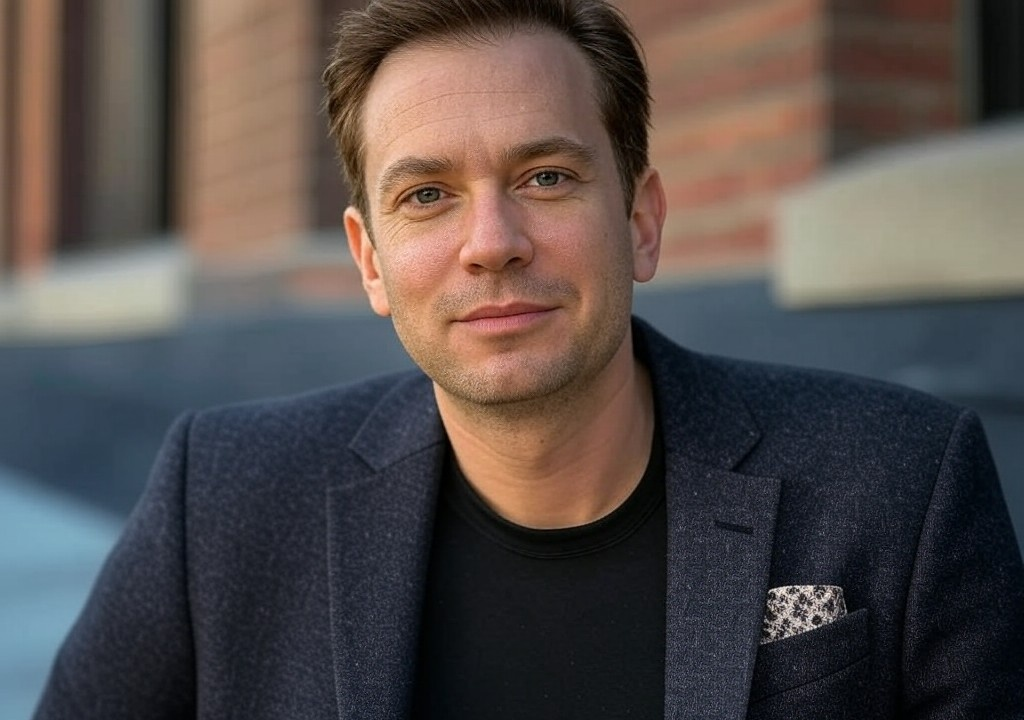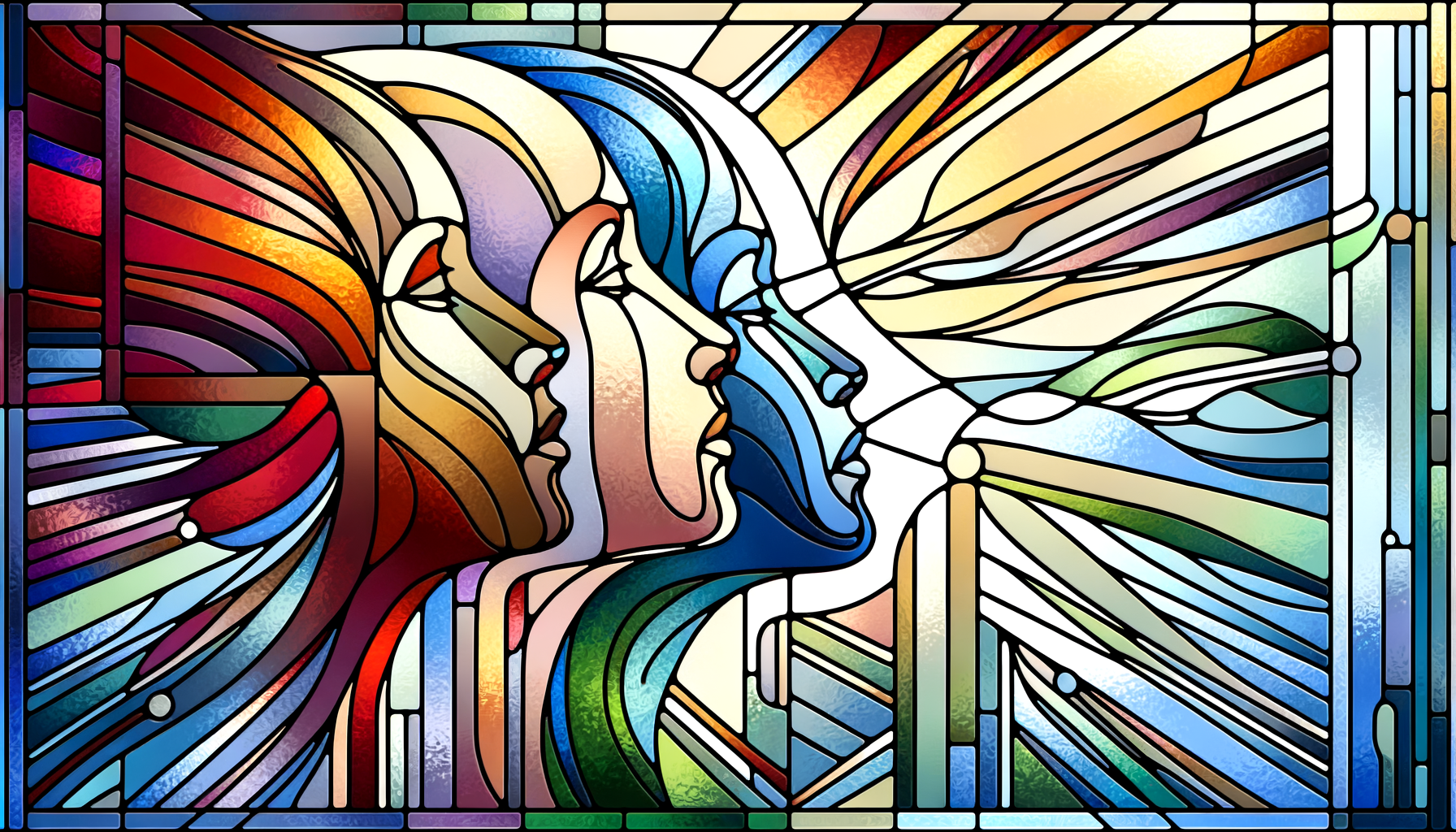It was a humid summer evening in New York—the kind where the city clings to your skin, equal parts oppressive and electric with possibility. I was nursing a drink at a nondescript bar in Fort Greene, enduring yet another post-breakup slump. You know the kind: scrolling through photos of your ex’s golden retriever like she’s the one who got away, replaying arguments you lost (and shouldn’t have), wondering if you’d been unreasonably upset about their stance on pineapple pizza.
That’s when I met him—the stranger who would quietly, unknowingly, change my outlook on connection, heartbreak, and how much bourbon one should consume in a single sitting.
When a Stranger Pulls Up a Chair
He was unassuming at first—a wiry man in a slightly too-tight button-up, the kind of guy who looked as if he could have been a philosopher or an aspiring DJ, depending on the lighting. He sat on the stool next to mine without invitation, sliding a copy of James Baldwin’s The Fire Next Time onto the bar like it was his calling card.
“You look like someone who needs to talk,” he said.
I was halfway to giving him my best Brooklyn side-eye, but something about his delivery stopped me. He didn’t say it with condescension, or pity. He said it with conviction—like he had lived his fair share of nights where the weight of everything had to be shared with someone, anyone, who might listen.
And maybe it was the Baldwin reference. Flattery by shared literary taste will get you everywhere with me.
So, naturally, I told him everything. About my ex, Maria, whose laugh had made me believe in all the cheesy clichés about soulmates, and whose sudden disinterest in building Ikea bookshelves together had been a red flag I’d ignored. About how I thought I’d been too much—too particular, too opinionated, too "me"—and how I wondered whether that was why it all unraveled.
He didn’t interrupt, didn’t rush me, didn’t even ask follow-ups. Just nodded, nursing his own drink like this was a story he’d heard a thousand times but still cared about deeply. When I finally finished rambling, he said something so simple, it floored me.
“You’ve gotta let people choose you.”
The Lesson I Had to Hear
At first, I was annoyed. Let people choose me? What was this, the dating equivalent of The Bachelor? But he went on, keeping his voice even, almost meditative.
“Too many people spend all their time trying to convince someone they’re worth it. They don’t stop to think about whether that person is choosing them back—fully, freely, flaws and all. It’s not about winning someone over. It’s about mutual choosing.”
He could’ve been quoting a self-help book or channeling a stand-up comedian delivering a mic-drop line. Either way, it stung because it rang true. I had spent most of my relationship with Maria tiptoeing around my edges, sanding down my quirks, softening my opinions. I wasn’t being entirely myself; I was being the version of me I thought would keep her around.
And spoiler alert—it didn’t work. Pretending to be someone else is exhausting, unsustainable, and more importantly, disingenuous.
“You wanna know the key to connection?” he asked, interrupting my inner monologue. I nodded. “It’s not about being liked by everyone. It’s about finding the courage to be seen by the right ones.”
The Problem with Being "Too Much"
That phrase “too much” kept looping in my head long after he left—a ghost of past criticism I’d carried like an unwanted roommate. I hear it from friends all the time too: I’m too weird, too clingy, too ambitious, too opinionated. And here’s the thing about being “too much”—it’s usually code for “I’m scared of my own vulnerability, so I’ll try to shrink it.”
But what if we stopped shrinking? What if the very personality traits someone sees as “too much” are the ones that make us unforgettable—to the right people?
Think about it. Issa Dee in Insecure wasn’t “too awkward,” no more than Chandler Bing was “too sarcastic.” Instead, they were unapologetically themselves, and deep down, isn’t that the reason we loved them? Sure, life isn’t a perfectly-scripted sitcom, but the logic holds: the quirks you think might scare someone off are often the same ones that signal a meaningful fit.
How We Choose and Get Chosen
The stranger’s words stuck with me, not just as a balm for my bruised heart but as practical advice for every stage of dating—not just the heavy stuff. Here are three core takeaways his offhand wisdom inspired:
-
Stop Chasing, Start Attracting
We exhaust ourselves trying to persuade people to give us attention, to validate us. What if, instead of chasing someone’s approval, we radiated authenticity so strongly that the “right” connections drifted toward us, like moths to the glow of our unabridged selves? -
Praise Your Red Flags
Of course, I’m not saying you shouldn’t recognize toxic behavior or areas for growth—we all have those—but there’s a huge difference between “this thing makes me human” and “this thing makes me unworthy.” It’s fine to hate Monday mornings or insist on parallel parking instead of valet. Own it, name it, laugh about it. It’s part of your texture. -
Look for Reciprocity, Not Perfection
Let’s retire the checklist spouse/partner model. Mutual choosing isn’t about scoring 7 out of 10 on someone’s compatibility rubric. It’s about showing up honestly, ready to offer and receive care, support, affection—even if it’s messy.
A Lasting Shift in Perspective
The stranger left as quietly as he arrived, sliding out into the Brooklyn night with his Baldwin book in hand and a faint grin, as if he knew he’d just pulled off some kind of mic-drop therapy session in less time than it takes for an Uber to arrive.
I never got his name. I don’t even know if the advice he gave was intended for me or just something he believed wholeheartedly for himself. What I do know is this: I’ve stopped seeing the end of a relationship as evidence that I’m too much, too wrong, too anything.
Now, I consider not just who I want in my life but how I’m being chosen in return. Because the moments that change us don’t always come from people we know deeply—they sometimes come from strangers who pull up a chair, say a single phrase, and remind us of the one thing we needed to remember all along: when you’re fully yourself, the right ones will stay.




















